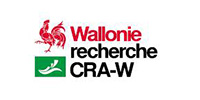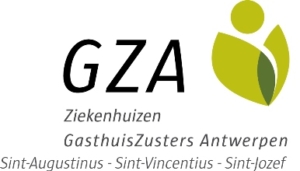The CRA-W (Walloon Agricultural Research Centre) plays an essential role in the sustainable development of the agro-food industry in Wallonia. The Centre continuously conducts between 100 and 200 research projects in the domains of precision agriculture and breeding, risk management and product knowledge enhancement. In the agricultural context, various research has been conducted into in vitro micropropagation. 1
In vitro micropropagation is a plant biotechnology used for cloning plants through diverse methods of cell, tissue and organ culture. It has many demanding requirements in regards to explants, asepsis, culture media, growth containers and the control of macro- and micro-environmental conditions in a laboratory and for cell culture.2
Traceability
The in vitro laboratory at the CRA-W has been conducting many experiments on a wide range of plant species and varieties for over thirty years. The lack of a digitalised traceability system has proven to be a cause for the loss of important information, a higher risk of tagging errors and difficulties in monitoring existing stocks.
To face the complexities of the practical functioning of a laboratory head on, the CRA-W called on PHI DATA, an integrator of specialised ICT solutions, with the goal of developing an automated and precise identification and tagging system. The required solution aimed to standardise the daily work tasks of technical staff, to ensure the traceability of all activity by integrating it automatically into a database and, through this system, to achieve quality objectives of standardisation (ISO). Furthermore, the solution also needed to provide a day-to-day picture of the entirety of the cultures present within the laboratory, in order to ensure better management of all activities, allow for the swift retrieval of information about the history of a culture (the technical manager at each stage of transplanting, growth media used, movements of the cultures…), in order to better interpret the observed results and increase the efficiency and performance of the laboratory, obtain an accurate picture of the work conducted inside the laboratory, especially to implement clear evaluations, and, finally, to ensure the continued development of an innovative traceability system for in vitro cultures.
Barcode system
On the basis of an analysis of the specific needs of the CRA-W and following a computer analysis of the management process for the different key criteria for the optimisation of the automated process of identification and tagging, PHI DATA proposed a tailored solution. This solution consists of 6 workstations each equipped with a mobile terminal on which is installed a mobile application, and a printer with pre-label removal. A centralized PC, on which are installed the server application and the database tracing all the activities, completes the solution.
The application rests on the implementation of a solution for identifying and reading barcodes to trace a plant contained within a growth container, from its in vitro introduction, throughout all stages of micropropagation and until it is sent to producers. The information gathered at the work stations is sent to the centralised PC, which will display information pertaining to the management of culture stocks, the upstream-downstream history of a culture, the multiplication quantity of an original bottle, the list and number of bottles in which a culture has expired, and, in fine, for determining which parameters have proven to be the most favourable to the growth of a culture.
Reduce errors and optimize processes
This identification and tagging system has now been implemented, and has led to a drastic reduction in the risk of tagging errors (95%), better knowledge of stock, generation numbers, etc. through complete and operational traceability, evaluations of the contamination levels of cultures, optimal staff management (monitoring of the number of boxes handled per day), the optimisation of purchasing management through a better idea of the amount of work that is feasible within a certain period, and the possibility of meeting the demands of the FASFC, in regards to the origin and traceability of cultures, particularly when plants are exported to specialised clients, mostly nursery owners.
Pascal Geerts, scientific attaché for the CRA-W, concludes that “this identification and tagging system is a relatively advanced system that makes simplification possible for production-only laboratories.” He adds that the system is very functional, in regards to multiplication management in the laboratory and that, in the future, traceability could be even further improved upstream, in terms of the preparation of growth media, and downstream, in terms of storage in greenhouses.
References
- CRA-W, http://www.cra.wallonie.be/en/cra-w, consultation date 25 August 2019
- Loberant B. and Altman A. Micropropagation of Plants. Encyclopedia of Industrial Biotechnology: Bioprocess, Bioseparation, and Cell Technology 2010 – https://doi.org/10.1002/9780470054581.eib442










